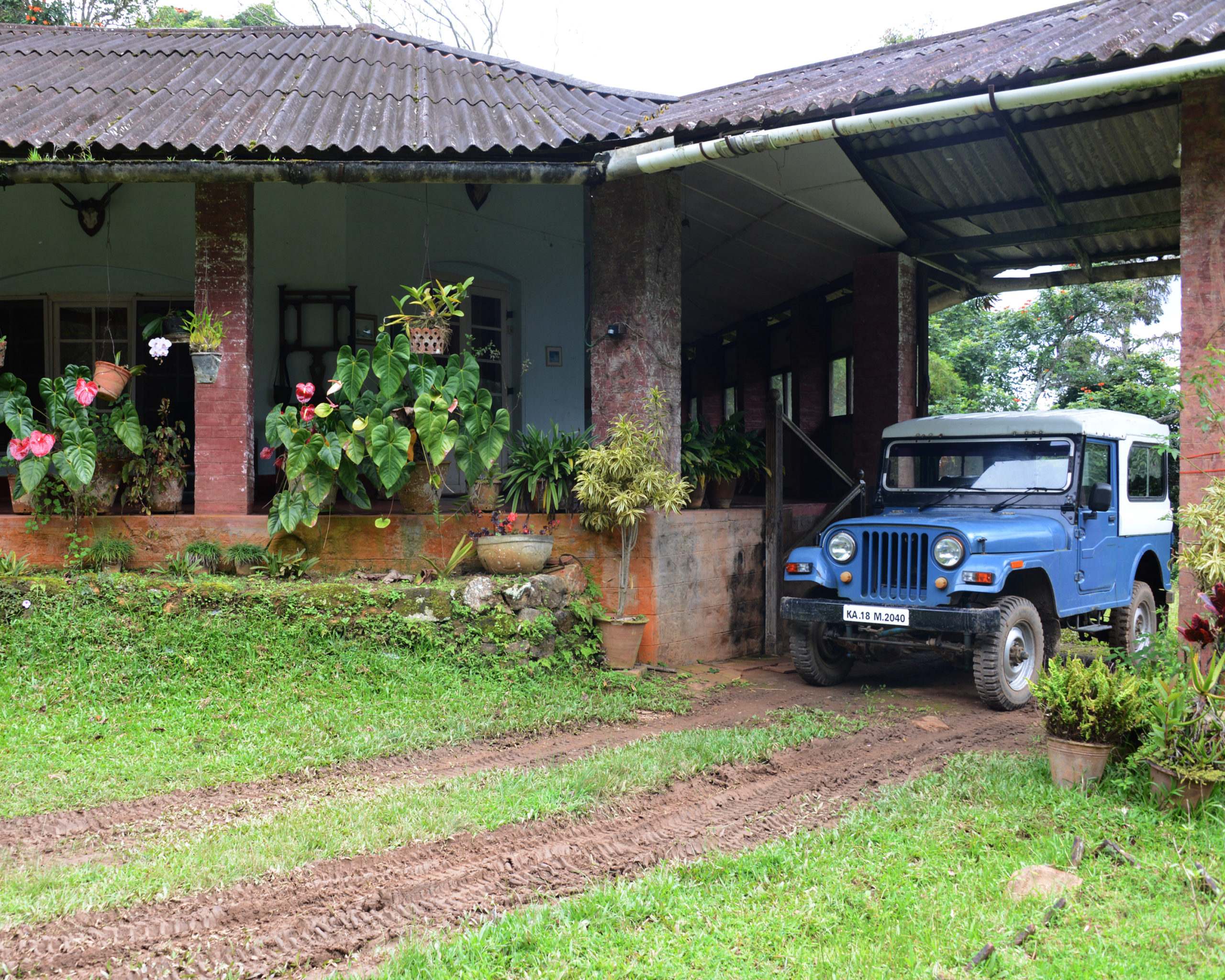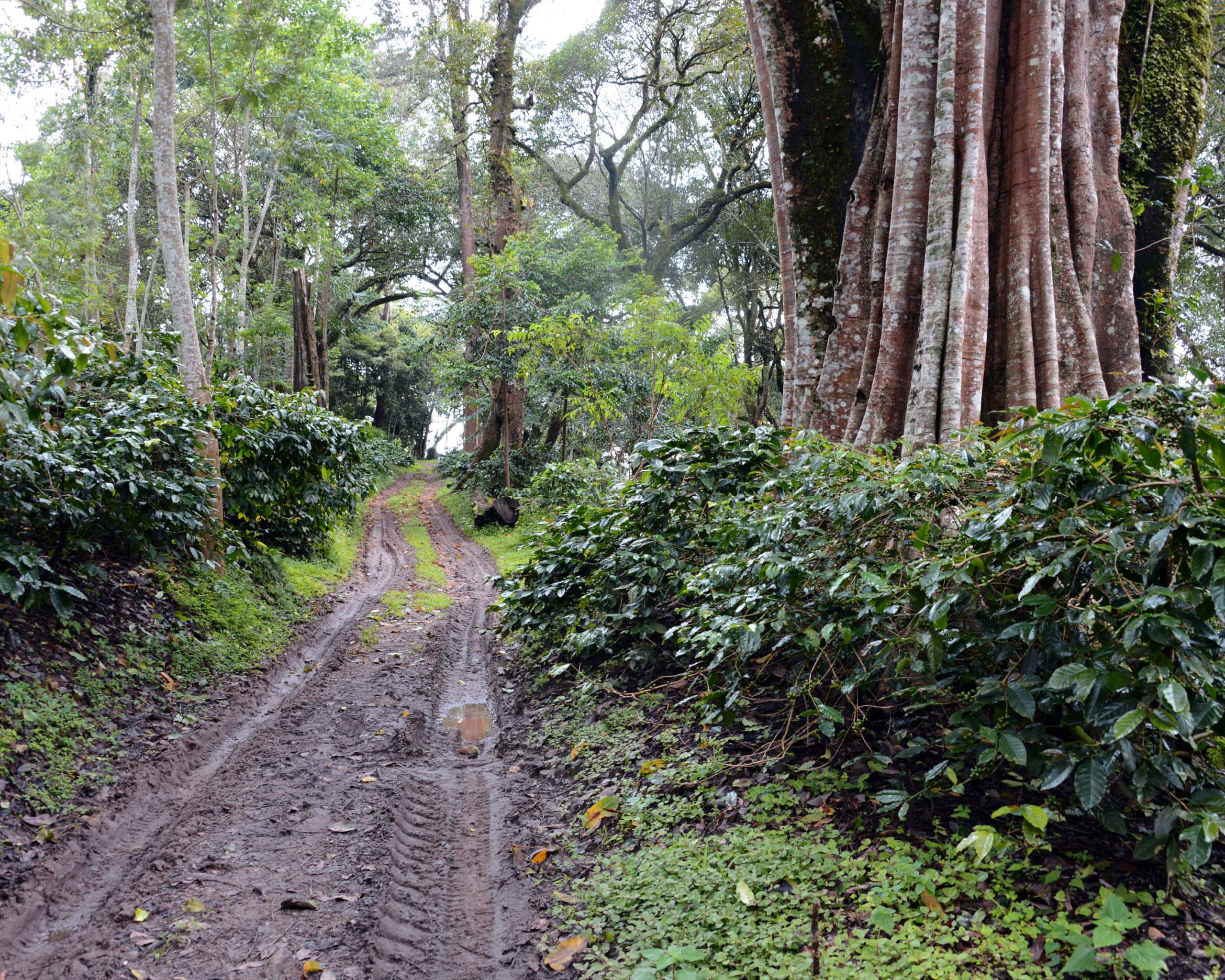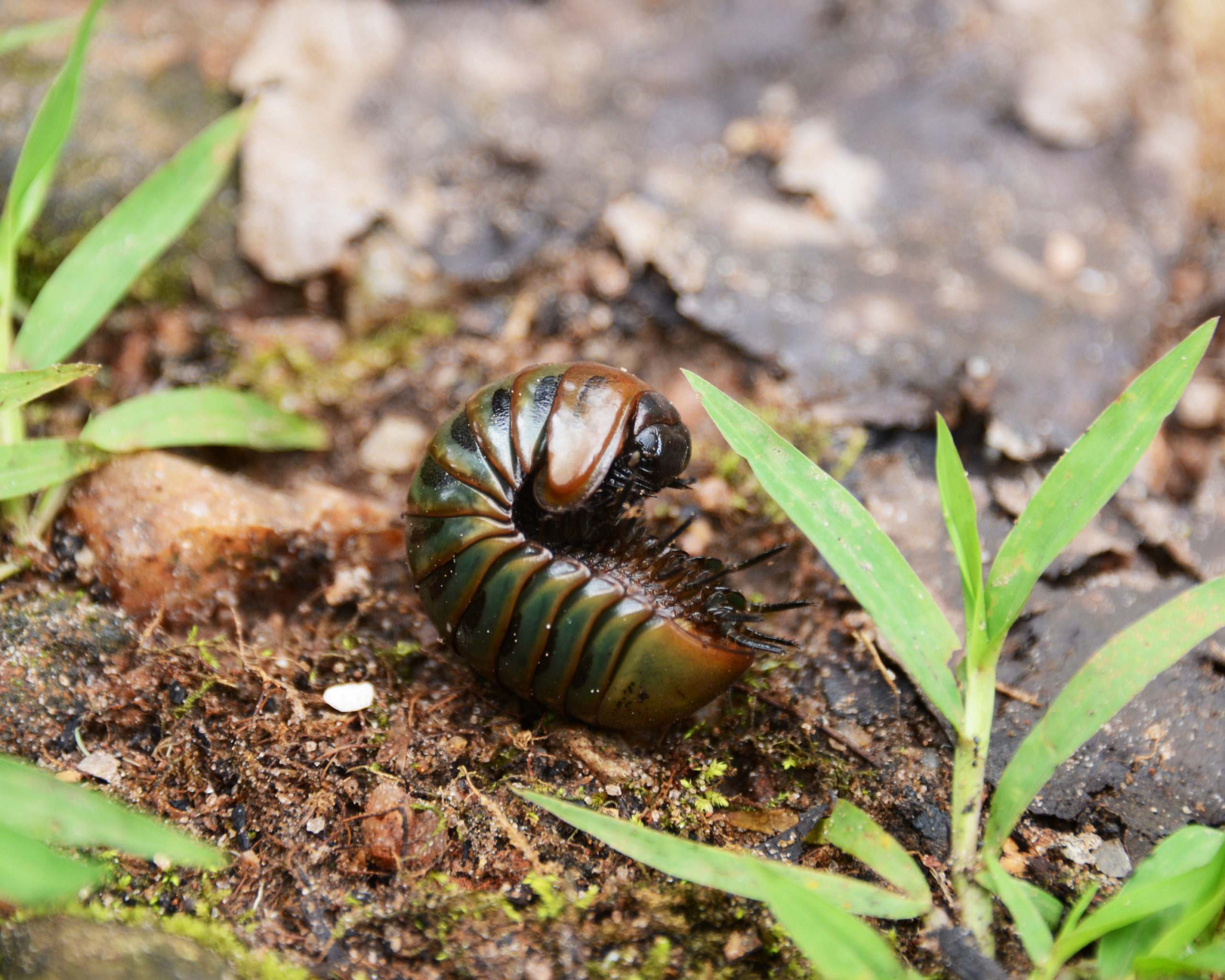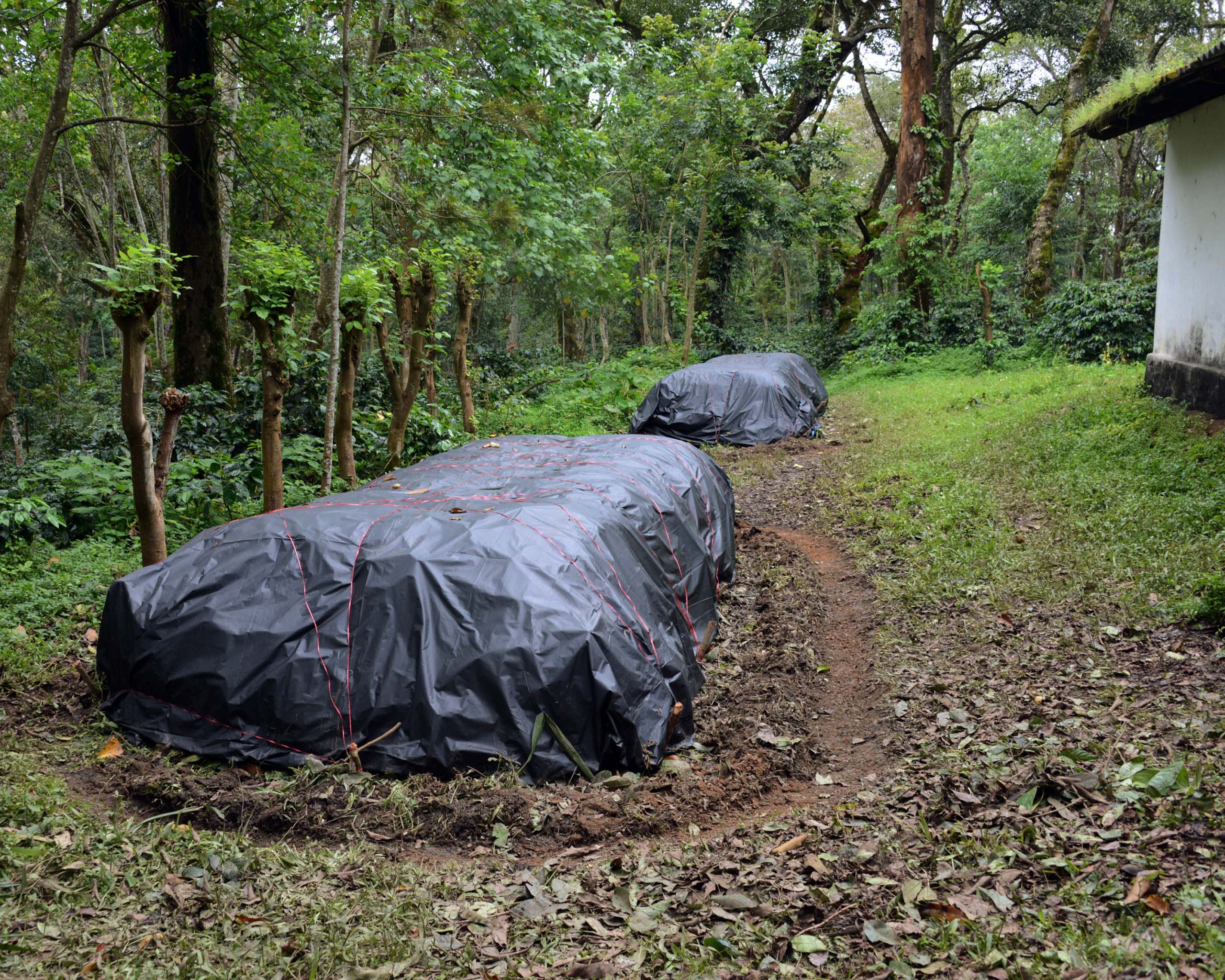In Kannada, ‘Yelli kodige’ literally means, among other things, “Where is the key?”. The meaning largely depends on the context and tone of voice, making ‘Yelli kodige’ a multi-purpose phrase in India’s Kannada-speaking communities. But the name is not just a question; it’s a philosophy that underscores the farm’s ethos. This friend-owned coffee estate in India spans acres of rolling hills, shaded by dense canopies of trees. These ancient trees create a microclimate that, while not optimized for coffee tree productivity, serves as a haven for various plants, insects, reptiles, and mammals. Here, coffee cultivation transcends mere bean production; it’s about preserving the land’s integrity and ensuring the well-being of the people who rely on it.
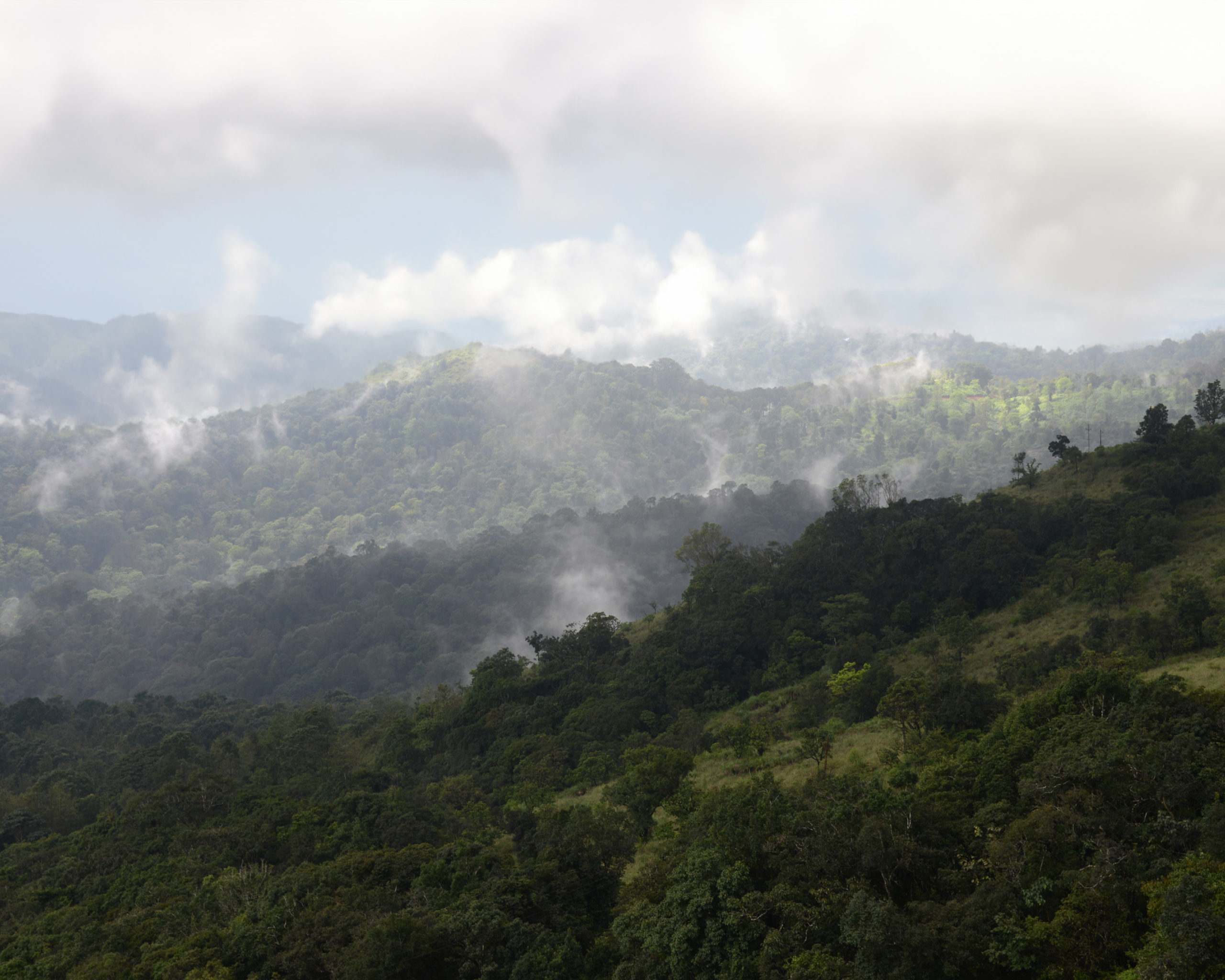
In 2022, we met the farm and export team (Ekata) for the first time. We vividly remember the group of young men sitting in their cupping lab, explaining to us how they would like to reverse climate change in the Western Ghats by mobilizing young coffee farmers in the region and implementing more biodynamic agricultural practices. Thereby they would like their farm, Yellikodige, to be a model and an inspiration to the community. The more time we spent with the team, the more we started to believe that they can actually pull it off. We wanted to become part of their bold vision.
Visiting the farm is an extraordinary experience. At first sight, the entire farm resembles a lush forest adorned with majestic tropical trees. These trees are left untouched, allowing them to create a microclimate that, while not optimized for coffee tree productivity, serves as a haven for various plants, insects, reptiles, and mammals. This vibrant ecosystem even extends to the soil, which thrives from regular enrichments with compost produced at the farm’s heart.
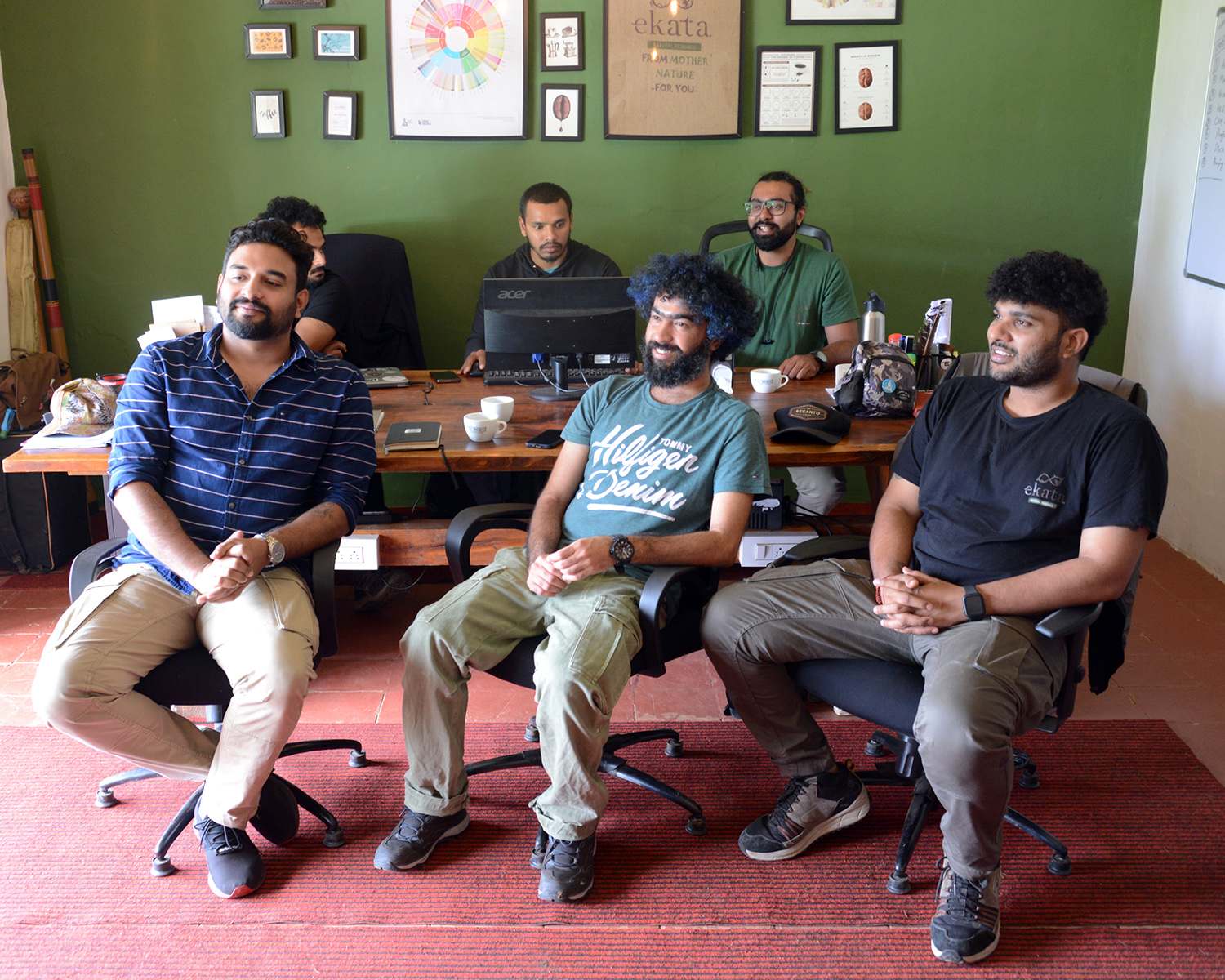
These unique components culminate in the growth of remarkably robust coffee trees, yielding healthy coffee beans that are meticulously hand-picked when they reach a deep, rich red hue. Their team finally understands the pivotal role of post-harvest processing. This year, we’ve made the decision to source a washed Arabica lot that undergoes a 72-hour fermentation process, followed by careful drying on raised beds.
At Yellikodige coffee farm, they have cultivated a haven of sustainability. Their Demeter certification goes beyond a label; it stands as a testament to their unwavering commitment to ecological harmony and ethical farming practices.
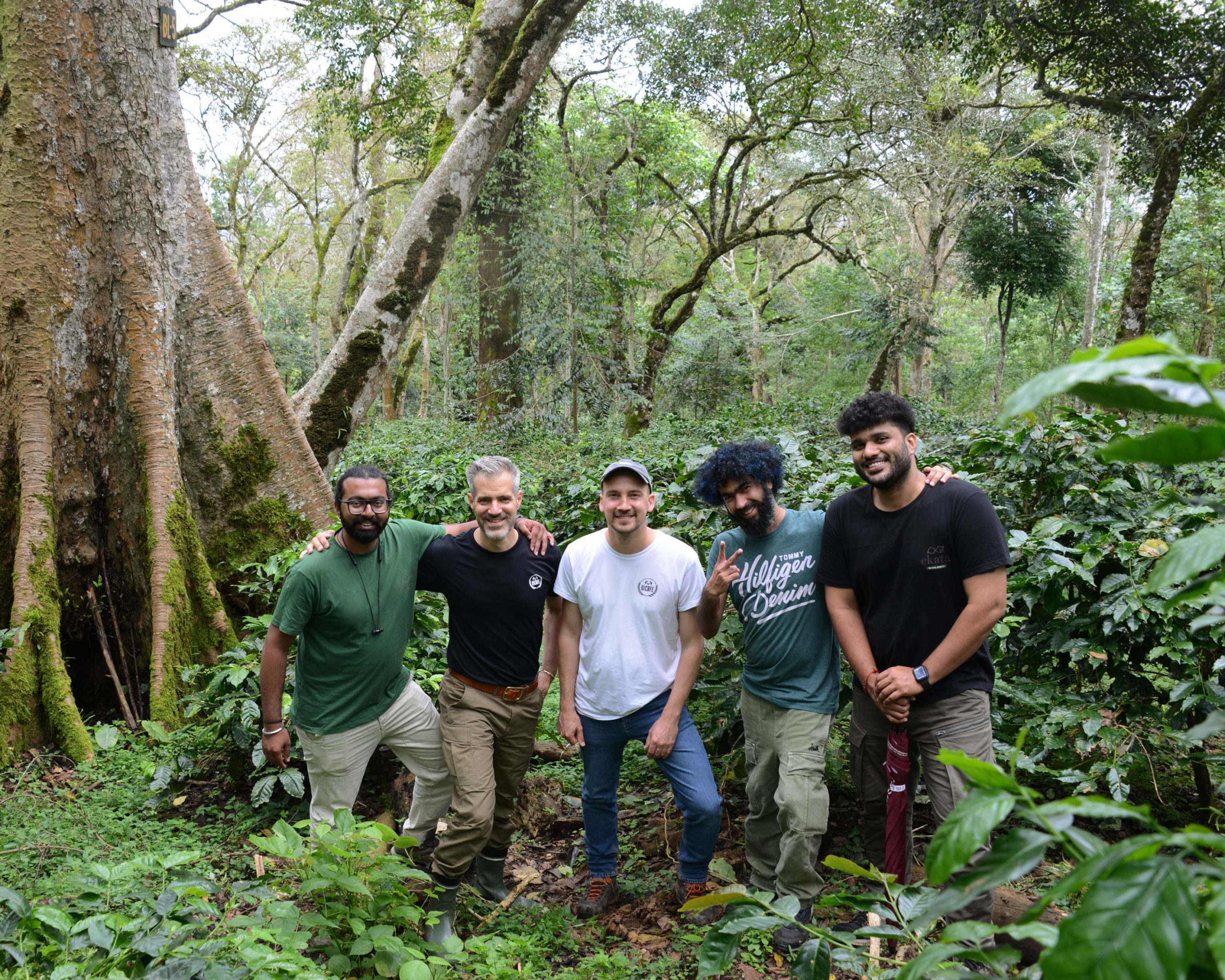
Demeter Certification
At the core of Yellikodige's philosophy is their Demeter certification, a testament to their deep commitment to sustainability. Biodynamic farming is more than a method; it's a holistic and sustainable approach that treats the farm as a living, self-sustaining organism, prioritizing soil health and biodiversity.
This approach involves rigorous adherence to standards, covering soil quality, precise crop rotation, and even celestial influences, to attain Demeter certification. This prestigious label guarantees the highest ecological and ethical standards, reflecting Yellikodige's dedication to both the environment and the community it serves.

